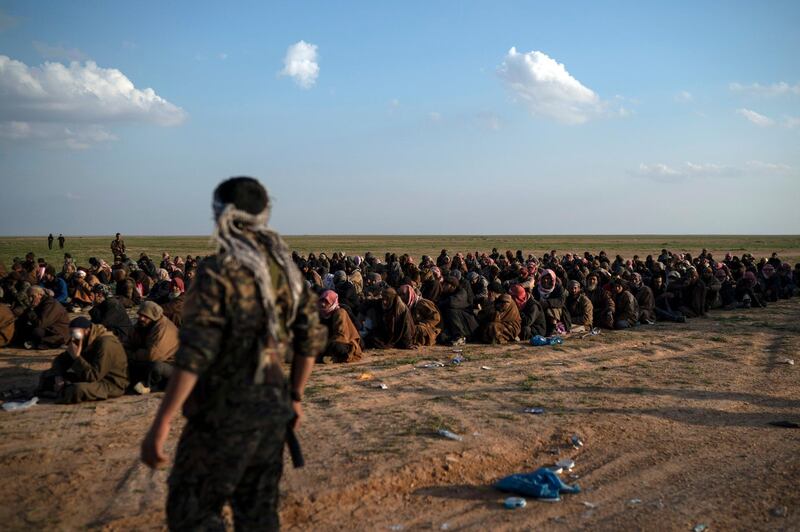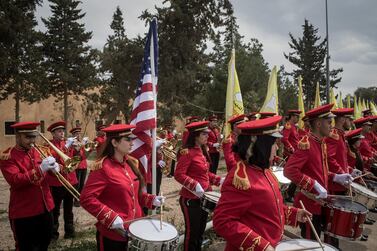Forty to 50 British IS fighters have been captured in Syria in the last three months, the British public broadcaster BBC reported on Monday, and more may be identified in camps in north-eastern Syria.
Among them is was Hamza Parvez, a British fighter who joined the group five years ago and stayed until the very end. He has surrendered to Kurdish forces and is being held in a prison in Syria.
A former police cadet from west London, he claimed in an interview with BBC that he did not know what he was getting himself into when he left the UK to join the group.
“I didn’t know that there was something waiting for me like that,” he said. “We never would have come if we had known the realities of ISIS.”
The man, who is now 26, said western fighters kept mainly to themselves in fear of being associated with ISIS members on a drone hit-list. He tried to leave the self-proclaimed Caliphate multiple times, he said, but doing so “wasn’t as easy as it sounds.” “It could be a life or death decision,” he said.
He appeared on an ISIS recruitment video after joining the extremist group in 2014, telling British Muslims to follow his example. He was later mocked online and nicknamed 'Hungry Hamza' after he said he missed fast food.
Parvez is said to have now been stripped of his British citizenship. He is still believed to have Pakistani citizenship, where his family was originally from . He married a Canadian-Pakistani woman in Syria, who is also currently in prison, and had two children with her.
He admitted to knowing ISIS executioner Mohammed Emwazi, known as 'Jihadi John', but claimed western fighters did not spend much time together to avoid drone strikes.
He had a middle-class upbringing in west London and got a job as an accountant for a hotel firm. He convinced his family to finance a trip to Germany for academic purposes and then disappeared disappeared into Syria.
The family said in 2014 they "felt betrayed" by his decision to leave Britain to join the extremists.
Another British extremist, Zakaryia Elogbani, said the the group 'tricked' people into joining them. "It's a gang, but they raise the flag of jihad. A lot of people are tricked. Don't fall into the same trick," he said in an interview with the BBC. His legs were blown off in a rocket attack.
Like "Jihadi John", he was a student at the University of Westminster. The institution was at the centre of criticism in 2015, when accounts of ISIS recruits who had attended the same university begun to emerge.
They said 'his soul was wasted' after he fled to Syria, and they 'feel betrayed' by his actions.
A report by The Sunday Telegraph found that British intelligence was deliberately not interviewing Islamic State suspects in Syria partly because of fears that any contact could strengthen the detainees' case for returning to the UK.
UK officials said the government is worried that any encounter between MI6 officers and British suspects risks giving the detainees a legal foothold which they could exploit to come back to Britain, the report found.
Britain’s intelligence agencies have maintained “a strategic distance” from UK detainees in Syria, having been dogged by years of lawsuits over their role in the treatment of suspected jihadists abroad.
The end of the Islamic State group’s so-called caliphate was announced less than a week ago, after the last stronghold in Baghouz was recaptured from the group. Some 9,000 foreigners are held in a fenced section of the encampment under the watch of Kurdish forces.







